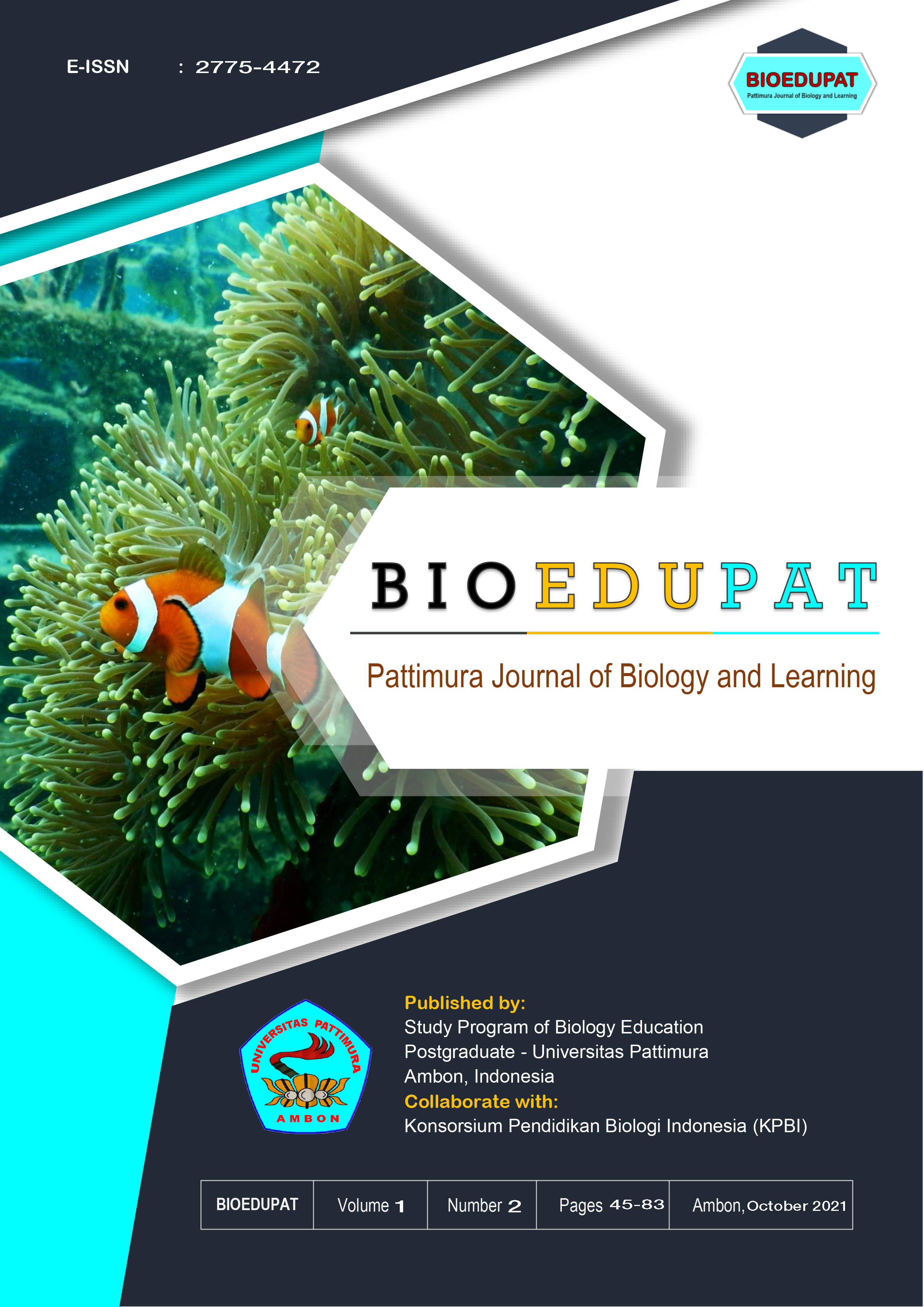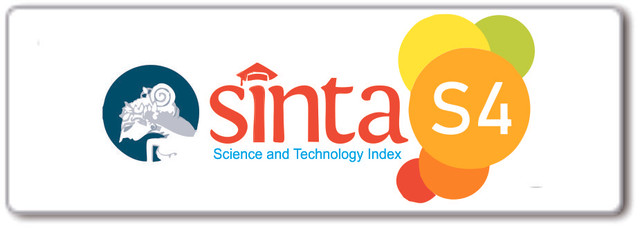Association patterns of seagrass with gastropods types in the intertidal zone of coastal waters, Suli village, Salahutu district, Ambon island
Abstract
Seagrass beds play an important role in coastal aquatic ecosystems and are one of the tidal areas that are widely used by the community as a forum for the interests of educational institutions in research activities, conservation of various marine biota. Ecologically, the seagrass ecosystem acts as a shelter and a place to eat various marine biota, including gastropods. The purpose of this research is not only to explore the diversity of gastropods, but also to examine the interactions of gastropod species, both between the same species and between different species in a community of seagrass ecosystems. The diversity index calculation shows the diversity index value H = 3.982 > 3, this means that the diversity of gastropod species is quite good. The results of the basic analysis obtained the calculated X2 value of 0.656, > X2 table with a significant level of 0.05%. There is an association relationship between seagrass ecosystems and the types of gastropods that live in seagrass ecosystems in coastal waters of Suli Village, Ambon.
Keywords: Gastropods, Seagrass meadows, Association
Downloads
Copyright (c) 2021 Hasan Tuaputty, Tri Santy Kurnia, Syahran Wael

This work is licensed under a Creative Commons Attribution-NonCommercial-ShareAlike 4.0 International License.
Authors who publish with BIOEDUPAT: Pattimura Journal of Biology and Learning agree to the following terms:
- Authors retain copyright and grant the journal right of first publication with the work simultaneously licensed under a Creative Commons Attribution License (CC BY-NC-SA 4.0) that allows others to share the work with an acknowledgment of the work's authorship and initial publication in this journal.
- Authors are able to enter into separate, additional contractual arrangements for the non-exclusive distribution of the journal's published version of the work (e.g., post it to an institutional repository or publish it in a book), with an acknowledgment of its initial publication in this journal.
- Authors are permitted and encouraged to post their work online (e.g., in institutional repositories or on their website) prior to and during the submission process, as it can lead to productive exchanges, as well as earlier and greater citation of published work.









 This work is licensed under a
This work is licensed under a 